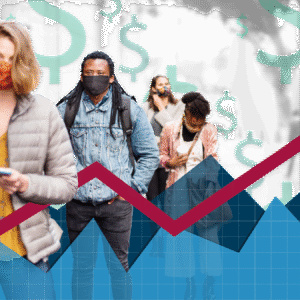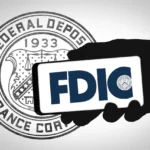You’ve probably heard about the Federal Reserve on the news—especially when interest rates change. But what does the Federal Reserve actually do? And more importantly, how does it affect your daily finances?
Whether you’re borrowing money, paying off a loan, saving for the future, or managing monthly expenses, the Federal Reserve affects your wallet in more ways than you think.
What Is the Federal Reserve?
The Federal Reserve (or “the Fed”) is the central bank of the United States. Its main job is to keep the economy stable by:
-
Controlling inflation
-
Managing employment levels
-
Regulating interest rates
The Fed doesn’t directly set the prices in stores, but its decisions influence how much things cost, how much interest you earn on savings, and how expensive your loans become.
How Interest Rates Influence Your Money
The most direct way the Federal Reserve affects your wallet is through interest rates.
When inflation is high, the Fed raises interest rates to slow down spending. When the economy is weak, it lowers rates to encourage borrowing and investment.
This impacts you in several ways:
-
Credit Cards: Higher rates mean more expensive monthly payments if you carry a balance.
-
Mortgages and Auto Loans: Interest rate hikes make loans more expensive. A higher rate means a bigger monthly mortgage or car payment.
-
Savings Accounts: When the Fed raises rates, banks may offer better interest on your savings.
Even a small change in rates can mean hundreds—or thousands—of dollars over time.
Inflation and Your Cost of Living
The Fed’s decisions also aim to control inflation—the rise in prices over time. When inflation is high, your money buys less. Groceries, gas, and services cost more.
To fight inflation, the Fed raises rates, which can lead to:
-
Slower price increases
-
Reduced spending power (temporarily)
-
Fewer job opportunities in the short term
So while raising rates can help lower inflation, it may also cool down the economy, which can impact jobs and income growth.
Your Investments and Retirement Accounts
If you invest in stocks, bonds, or retirement accounts like a 401(k), the Fed’s actions can influence your returns.
-
Stock Market: Investors react to Fed news. Rate hikes often lead to short-term stock drops.
-
Bonds: Bond yields usually rise with interest rate hikes.
-
Real Estate: Higher mortgage rates may reduce demand, affecting home values.
Knowing how the Federal Reserve affects your wallet helps you make better financial decisions when markets react.
Final Thoughts – Why You Should Pay Attention to the Fed
Most people don’t follow central bank news—but they should. The Federal Reserve affects your wallet whether you’re saving, spending, borrowing, or investing.
By understanding how it works, you can:
-
Time big purchases better
-
Shop around for better savings rates
-
Manage debt smarter
-
Make informed investment choices
In short, the Fed may be in Washington, but its policies impact your life every day.














